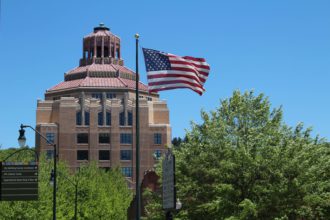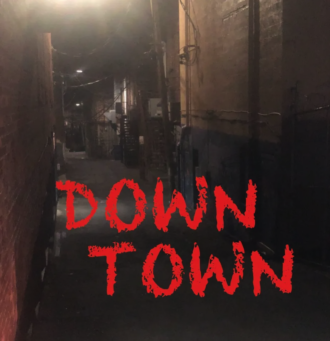The outage spanned 11 days, from Dec. 24, 2022 through Jan. 4, 2023, left tens of thousands of customers without water and shut down businesses during the crucial holiday season.


The outage spanned 11 days, from Dec. 24, 2022 through Jan. 4, 2023, left tens of thousands of customers without water and shut down businesses during the crucial holiday season.

When asked for comment on the report, Asheville Mayor Esther Manheimer issued the following statement: “The city and county partner in numerous ways and across many departments to bring services to residents. We are committed to continuing to enhance collaboration with the county and other regional partners.”

The key to managing homelessness is allowing affordable housing in one’s backyard. Some cities are better at that than others. Asheville? Not so much.

Part 11 of Asheville Watchdog’s “Down Town” series looks at how other cities have confronted mental health issues — with greater success.

As we conclude the “Down Town” series, our Watchdog reporters turn their attention to other cities that have had some success in addressing the challenges we have in common.

“Here’s the way I look at Asheville: Every 10 years they want to rebuild the wheel,” says downtown resident Kim MacQueen. “It’s a town that’s really comfortable with charrettes.”

Under Asheville’s “council-manager” form of government — sometimes also known as “strong manager, weak council” — only City Manager Debra Campbell is authorized to operate the city’s levers of power. Mayor Esther Manheimer has officiating duties but has no more authority than any other member of the city council.

A core group of people are responsible for a disproportionate amount of crimes in and around downtown and the cycle continues because local and state governments have failed to adequately invest in treatment, housing and alternatives to arrest.

Untreated mental illness is the nexus of many of the problems contributing to a perception that downtown Asheville has become less safe.

The Office of National Drug Control Policy has designated Buncombe, Henderson and McDowell counties as “High Intensity Drug Trafficking Areas.” More than two-thirds of Americans live in a county designated as HIDTA, according to the website.

For Part 4, Watchdog reporters shadowed the first-responders on the front lines of dealing with the recent rise in homelessness, substance abuse and addiction, and untreated mental health issues.

Part 3 of Asheville Watchdog’s series, “Down Town,” examines the reality of the recent deterioration of Asheville’s central business district.

Today, Asheville Watchdog continues its series Down Town, with an examination of the impact of a diminished police force especially downtown, where — as The Watchdog reported in Part 1 — merchants and residents have complained of increased break-ins and shoplifting, of human waste and needles in doorways, and of aggressive panhandlers.

Today, Asheville Watchdog begins Down Town, a series that examines crime and the effects of a diminished police force; the consequences of increased homelessness and devastating drug addictions; the impact on tourism; the response by Asheville’s leaders; and the approaches used successfully in other cities.

Wanda Greene was pulling down $250,000 a year and had just retired in July 2017, about to collect $15,000 a month in pension payouts for the rest of her life. And then it all came crashing down.

The Asheville City Council officially ended its regularly scheduled, private “check-in” meetings Tuesday, a long-awaited step that advocates say will bring more transparency to city government.

Council to vote on switch to public ‘work sessions’ Tuesday, Feb. 14.

Local advocates say they are skeptical that yet another study will make a difference.

Asheville’s history includes a litany of water failures and outages, ranging from a week-long outage caused by a hurricane in 2004 to more than 720 “boil water advisories” in various parts of the city between 2017 and 2021, usually caused by water line breaks or other troubles.

North Carolina can support as many as nine Las Vegas-style casinos with gambling throughout the state, including one in the Asheville area, according to a report commissioned by the General Assembly.

For at least five years, Asheville City Council members have debated and grappled with some of the most pressing issues facing Asheville in regularly scheduled private meetings with city staff — meetings that are outside of public view.